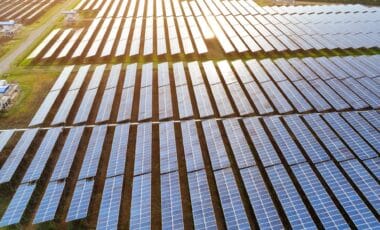Timing your daily laundry routine may not seem like a financial decision, but during the warmer months, it can have a measurable impact on your energy bills. As daily temperatures climb, so does household electricity demand—often driven by increased use of cooling systems and appliances.
According to insights reported by DevonLive, making small adjustments to when you wash your clothes can lead to noticeable savings, particularly under time-of-use (TOU) pricing schemes.
While the specifics vary depending on your energy provider, one overlooked habit—doing laundry at peak hours—could be costing more than you think, even if your machine’s consumption remains constant.
Peak Hours Mean Higher Rates for Energy Use
According to Allie Ogletree, energy expert at Save On Energy, many households underestimate the cost difference related to timing. She explains:
Your washing machine uses the same amount of energy regardless of when you run it. However, depending on your energy provider’s rates, you could still save on your energy bills by changing up what time of day you do your laundry.
TOU plans typically charge more during periods of high demand. Ogletree warns:
A common range for peak hours is between 4pm and 7pm. So the cheapest time to do laundry for an energy plan with these higher TOU rates would be before 4pm or after 7pm.
This evening rush often coincides with increased energy use across the grid, when households switch on multiple appliances after work.
Early Morning Washing Saves Energy and Money
The best time to run your laundry during summer is early in the day. Ogletree notes:
During the summer, it’s cheaper to run your washer early in the morning, when your home is coolest and energy demand is lowest.
This is particularly relevant as fan and air conditioning usage spikes in the afternoon, which can raise overall demand and affect pricing:
The surge of fan usage in the afternoons to combat the heat spikes energy demand – reports Express.co.uk.
Reduce Energy Use by Controlling Wash Settings
Many consumers overlook the energy consumption of heating water. The article from Express.co.uk points out:
…it’s the water heating that really consumes energy in a washing machine.
For garments like towels and baby clothes, a hot wash at 60°C is appropriate for hygiene reasons. But for routine items like t-shirts or jeans, a lower temperature is more efficient. Ogletree advises:
Sometimes using a super hot cycle on heavy duty is necessary to remove stains. For everyday wash cycles, though, avoid using settings that increase your energy consumption and stick with just a simple wash cycle.
Full Loads Improve Efficiency and Lower Bills
Regardless of timing or cycle, running a washer with a partial load wastes energy. Ogletree emphasises:
Washing machines use the same energy regardless of load size, so waiting until you have a full load can also contribute to cost-cutting efforts.
By combining smaller loads and sticking to simpler wash settings, households can reduce both energy consumption and wear on the appliance.
Planning and Awareness Make a Difference
The takeaway is simple: energy savings aren’t only about what appliances you use, but when and how you use them. Understanding your utility’s TOU pricing, adjusting wash schedules, using cold water, and running full loads can significantly reduce summer energy bills.
All insights and quotes are based on reporting by Express.co.uk, with contributions from Allie Ogletree of Save On Energy, a consumer platform offering advice and resources for reducing household energy costs.









